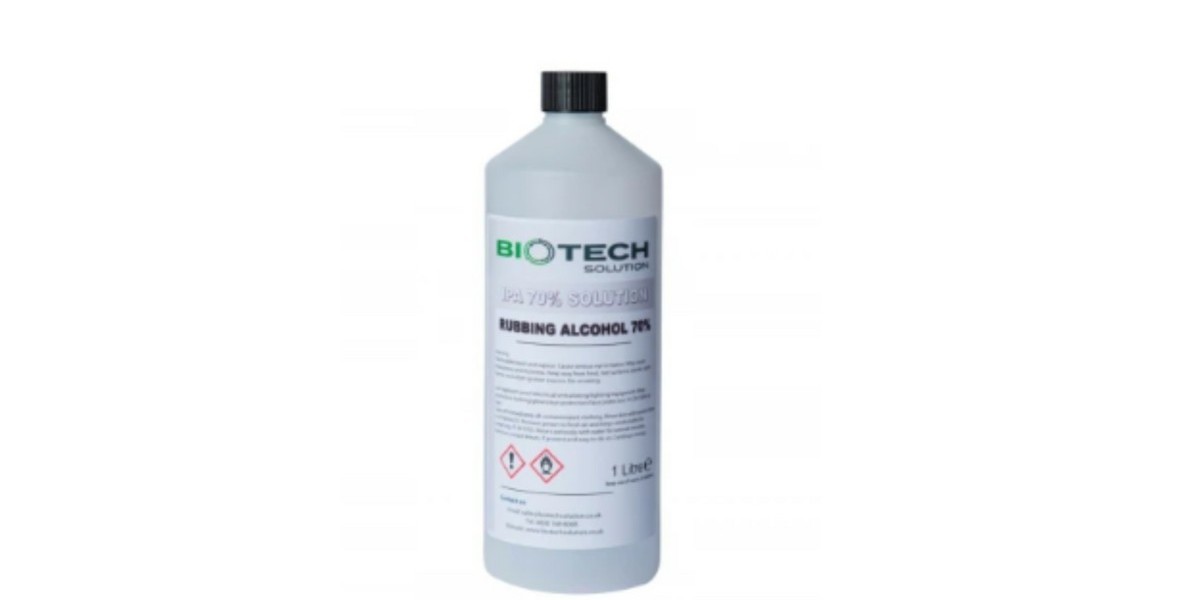Rubbing alcohol is one of the most versatile household products. From disinfecting surfaces to treating minor wounds, it plays a crucial role in maintaining hygiene. Whether used in medical settings or at home, this powerful antiseptic is a must-have. But do you know how to use it safely and effectively?
In this guide, we’ll explore the rubbing alcohol benefits, its various applications, and important safety tips.
What is Rubbing Alcohol?
Rubbing alcohol, also known as isopropyl alcohol or surgical spirit, is a solution made of 70% to 99% alcohol and water. It has strong disinfecting properties, making it an essential product in first-aid kits, households, and hospitals.
Types of Rubbing Alcohol
There are mainly two types of rubbing alcohol:
- Isopropyl Alcohol: The most common type, used for cleaning, sanitizing, and first aid.
- Ethyl Alcohol (Ethanol): Less commonly used but has similar disinfecting properties.
Fact: According to the CDC, rubbing alcohol with at least 70% concentration is highly effective in killing bacteria and viruses.
Top Uses of Rubbing Alcohol
1. Disinfecting Surfaces
Rubbing alcohol is widely used for disinfecting home and office surfaces. It effectively kills germs, including bacteria and viruses.
✔️ Best for cleaning doorknobs, countertops, and light switches.
✔️ Ideal for sanitizing mobile phones and keyboards.
✔️ Used in hospitals to disinfect medical equipment.
2. First Aid & Wound Cleaning
Doctors recommend rubbing alcohol as a first-aid antiseptic. It helps prevent infections in minor cuts and scrapes.
⚠️ Tip: Avoid applying rubbing alcohol on deep wounds, as it can slow healing and cause irritation.
3. Hand Sanitizer Alternative
With growing concerns about germs, many people use rubbing alcohol as a DIY hand sanitizer. It is a key ingredient in most commercial hand sanitizers.
How to make DIY hand sanitizer:
- Mix 3 parts rubbing alcohol (at least 70%) with 1 part aloe vera gel.
- Add a few drops of essential oil for fragrance.
4. Removing Sticky Residue
Got sticker residue on your laptop or furniture? Rubbing alcohol can break down adhesives and make removal easy.
✔️ Works on glass, plastic, and metal surfaces.
✔️ Safe for removing price tags and glue residue.
5. Eliminating Odors
Rubbing alcohol is great for neutralizing bad smells. It kills odor-causing bacteria and leaves surfaces fresh.
✔️ Deodorize shoes by spraying some rubbing alcohol inside.
✔️ Use it to freshen up gym bags and upholstery.
Household Cleaning Uses of Rubbing Alcohol
6. Cleaning Electronics
Phones, keyboards, and remotes collect a lot of bacteria. Wipe them with a cotton pad dipped in rubbing alcohol for a germ-free finish.
✔️ Dries quickly without leaving streaks.
✔️ Safe for screens and plastic surfaces.
7. Mirror and Glass Cleaner
Forget expensive glass cleaners! Rubbing alcohol removes smudges and fingerprints from mirrors and windows.
✔️ Streak-free shine.
✔️ Works faster than traditional cleaners.
8. Disinfecting Makeup Tools
Brushes and sponges collect bacteria over time. Soak them in rubbing alcohol for 10 minutes and rinse with water.
✔️ Prevents skin infections.
✔️ Extends the life of beauty tools.
9. Removing Ink and Permanent Marker Stains
Ink stains on clothes or furniture? Dab some rubbing alcohol and watch the stains disappear.
✔️ Effective on fabric, leather, and walls.
✔️ Works well for whiteboards and laminated surfaces.
Personal Care Uses of Rubbing Alcohol
10. Treating Acne
Due to its antibacterial properties, rubbing alcohol helps dry out pimples and acne.
⚠️ Warning: Excessive use can dry out the skin. Use it sparingly.
11. Reducing Fever
A common home remedy is applying rubbing alcohol to reduce fever. However, doctors advise using it only under proper guidance.
✔️ Helps cool the skin quickly.
✔️ Works best when applied with a damp cloth.
12. Preventing Body Odor
Bacteria cause bad odor, and rubbing alcohol eliminates them. Apply a small amount underarms for instant freshness.
⚠️ Tip: Avoid using it daily as it can cause dryness.
Is Rubbing Alcohol Safe?
While rubbing alcohol is highly useful, it must be used carefully.
Precautions:
✔️ Never ingest rubbing alcohol—it is toxic if swallowed.
✔️ Keep away from open flames; it is highly flammable.
✔️ Store in a cool, dry place, away from children.
✔️ Avoid excessive use on the skin to prevent dryness.
Fact: The American Association of Poison Control Centers reports over 20,000 accidental rubbing alcohol poisoning cases annually.
Rubbing Alcohol vs. Hydrogen Peroxide: Which is Better?
| Feature | Rubbing Alcohol | Hydrogen Peroxide |
|---|---|---|
| Disinfecting | ✅ Strong | ✅ Medium |
| Wound Cleaning | ❌ Not recommended | ✅ Yes |
| Odor Removal | ✅ Yes | ❌ No |
| Stain Removal | ✅ Yes | ❌ No |
Both have strong disinfecting properties, but rubbing alcohol is more versatile for household use.
Final Thoughts
Rubbing alcohol is an essential product for cleaning, disinfecting, and personal care. Its ability to kill germs makes it a must-have in homes and hospitals. However, it should be used safely to avoid harmful effects.
Have you tried any of these rubbing alcohol hacks? Let us know in the comments!
FAQs
Q1: Can I use rubbing alcohol to clean my phone?
✔️ Yes, but make sure to use a soft cloth to avoid scratches.
Q2: Can rubbing alcohol be used as a disinfectant?
✔️ Absolutely! It kills germs on most surfaces effectively.
Q3: Is rubbing alcohol safe for pets?
❌ No, it can be toxic if ingested by pets.
Q4: Can rubbing alcohol be mixed with vinegar?
✔️ Yes! A mix of vinegar and rubbing alcohol makes a great natural cleaner.
Q5: Does rubbing alcohol expire?
✔️ Yes, it has a shelf life of about 2-3 years. After that, its effectiveness decreases.








